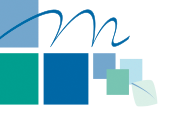




|
AMAM-Asymptotic methods applied to materials science. Méthodes asymptotiques appliquées à la science des matériaux |
||||||||||
|
Projet «Jeunes Chercheurs» N° ANR 10-JCJC 0106 Financé par l'ANR de 2011 à 2014 |
| Members | Presentation | Publications | Visitors | Events |
Members of the project
Presentation
The central theme of this project lies in the area of nonlinear analysis (nonlinear partial
differential equations, calculus of variations, geometric measure theory). It enters the general
effort to bring the analysis where problems of interest to other scientists (from continuum
mechanics, or physics) become mathematically accessible. Mathematical models for material
instabilities, phase transitions, plasticity, fracture, or micromagnetics are such examples of
equations whose analysis is the source of challenging issues for mathematicians. In
particular, recent works have been devoted to the justification of effective theories
(asymptotic analysis), and to the study of existence, regularity and singular behavior of
solutions to nonconvex, nonlocal problems (etc.). Among this very large field, we will focus
on multiscale structures in nonlinear partial differential equations. These multiscale
structures may have different origins. They may appear through explicit small parameters in
the model (as it is the case in homogenization or in models for micromagnetics). They may
also be more subtle, and appear as the result of a competition between two terms in an
energy functional (as it is the case for the bulk and surface energies in models for phase
transitions). Suitable mathematical tools are usually compactness methods, Young measures,
Gamma-convergence, viscosity solutions, gradient flows, etc. Some of these mathematical
tools have already given very deep insights, for instance in phase transitions or
micromagnetics, and still need to be further developed.
Our scientific program can be split into three major parts:
Nonstandard Homogenization: First of all, we wish to study nonstandard
homogenization problems, namely problems with nonstandard spatial structure
assumptions (beyond the periodic setting) as well as problems with nonstandard
operator structure (beyond the continuous setting). Our main goals are to study and
apply the concept of homogenization structure introduced by Nguetseng, and to
address the homogenization of some discrete systems in a time-dependent setting
with PDE tools.
Micromagnetics: Micromagnetics, a continuum model for the behavior of
ferromagnetic body essentially developed by Brown, may be considered a
paradigm of multiscale problems. Indeed, ferromagnetic materials exhibit complex
microstructures such as magnetic domains, domain walls (Néel walls, Bloch walls,
cross-tie walls) or vortices (Bloch-lines). We plan to study variational models used to
predict the morphology of a given specimen at different scales.
Defect Mechanics: We attend to analyze the evolution of damage, cracks and dislocations in various settings as quasi-static evolution or minimizing movements.
Moreover we wish to stress relationships between these evolutions and other
stationary concepts as damage/homogenization, fracture/Mumford-Shah,
dislocations/Ginzburg-Landau vortices.
Publications
- N. Fusco, V. Millot, M. Morini: Quantitative isoperimetric inequality for fractional perimeters, J. Funct. Anal. 261 (2011), no. 3, 697–715.
- I. Fonseca, N. Fusco, G. Leoni, V. Millot: Material voids in elastic solids with anisotropic surface energies, J. Math. Pures Appl. (9) 96 (2011), no. 6, 591–639.
- R. Ignat: Gradient vector fields with values in S^1, C.R. Math. Acad. Sci. Paris, 349, (2011), 883-887.
- R. Ignat: Two-dimensional unit-length vector fields of vanishing divergence, J. Funct. Anal. 262 (2012), 3465-3494.
- J.-F Babadjian, G.A. Francfort, M.G. Mora: Quasistatic evolution in non-associative plasticity - the cap model, SIAM J. Math. Anal., 44, no. 1 (2012), 245-292.
- R. Ignat, R. Moser: A zigzag pattern in micromagnetics, J. Math. Pures Appl. (9) 98 (2012), no. 2, 139–159.
- B. Galvao-Sousa, V. Millot: A two-gradient approach for phase transitions in thin films, NoDEA Nonlinear Differential Equations Appl. 20 (2013), no. 5, 1631–1682.
- M. Al Haj, N. Forcadel, R. Monneau: Existence and uniqueness of traveling waves for fully overdamped Frenkel-Kantorova models, Arch. Rational Mech. Anal., 210 (1), 2013, pp. 45–99.
- R. Ignat, L. Nguyen, V. Slastikov, A. Zarnescu: Stability of the vortex defect in the Landau–de Gennes theory for nematic liquid crystals, C.R. Acad. Sci. Paris, Ser. I 351 (2013) 533–537.
- J.-F Babadjian, A. Giacomini: Existence of strong solutions for quasi-static evolution in brittle fracture, to appear in Ann. Sc. Norm. Super. Pisa Cl. Sci. (5).
- J.-F. Babadjian, V. Millot: Unilateral gradient flow of the Ambrosio-Tortorelli functional by minimizing movements, Annales Inst. H. Poincaré © Nonlinear Anal., 31, no. 4 (2014), 779-822. .
- L. Doering, R. Ignat, F. Otto: A reduced model for domain walls in soft ferromagnetic films at the cross-over from symmetric to asymmetric wall types, to appear in JEMS (2013).
- J.-F. Babadjian, M.G. Mora: Approximation of dynamic and quasi-static evolution problems in elasto-plasticity by cap models, to appear in Quart. Applied Math.
- A.-C. Egloffe, A. Gloria, J.-C. Mourrat, and T. N. Nguyen: Random walk in random environment, corrector equation, and homogenized coefficients: from theory to numerics, to appear in IMA J. Numerical Analysis.
- J.-F. Babadjian: Traces of functions of bounded deformation, to appear in Indiana Univ. Math. J.
- A. A. Leon Baldelli, J.-F. Babadjian, B. Bourdin, D. Henao, C. Maurini: A variational model for fracture and debonding of thin films under in-plane loadings, Journal of the Mechanics and Physics of Solids, 70 (2014), 320-348.
- V. Millot, Y. Sire: On a fractional Ginzburg-Landau equation and 1/2-harmonic maps into spheres, to appear in Arch. Rational Mech. Anal.
- R. Ignat, L. Nguyen, V. Slastikov, A. Zarnescu: Uniqueness results for an ODE related to a generalized Ginzburg-Landau model for liquid crystals, to appear in SIAM J. Math. Anal.
- R. Ignat, L. Nguyen, V. Slastikov, A. Zarnescu: Stability of the melting hedgehog in the Landau-de Gennes theory for nematic liquid crystals, to appear in Arch. Rational Mech. Anal.
- T. De Pauw, A. Lemenant, V. Millot: On sets minimizing their weighted length in uniformly convex separable Banach spaces, submitted.
- N. Forcadel, Z. Rao: Singular perturbation of optimal control problems on multi-domains, submitted.
- N. Forcadel, A. Ghorbel, S. Walha: Existence and uniqueness of traveling waves for accelerated Frenkel-Kontorova model, submitted.
- N. Forcadel, C. Imbert and R. Monneau: Long time convergence of spirals moving by forced mean curvature motion, submitted.
- A. Gloria: When are increment-stationary random point sets stationary?, submitted
- A. Figalli, N. Fusco, F. Maggi, V. Millot, M. Morini: Isoperimetry and stability properties of balls with respect to nonlocal energies, to appear in Comm. Math. Phys.
- J.-F. Babadjian, A. Chambolle, A. Lemenant: Energy release rate for non smooth cracks in planar elasticity, submitted.
Visitors
- Luca Martinazzi (Scuola Normale Superiore di Pisa): May 2011
- Massimiliano Morini (Università di Parma): June 2011
- Maria Giovanna Mora (Università di Pavia): October 2011
- Vincent Munnier (Ecole Centrale de Lille): March 2012
- Duvan Henao (Pontificia Universidad Católica de Chile): May 2013
- Roger Moser (Université de Bath, Angleterre): December 2013
- Matthias Kurzke (Université de Nottingham, Angleterre), December 2013
- Pierre Bochard (Université Paris-Sud), November 2013
Events
- 15-16 March 2012: Dizaine rencontre d'analyse
- 12-14 September 2012: Conference on Geometric Measure Theory
- 23-27 September 2013: Metric and variational structures in singular varieties
 |
 |
 |
 |
 |